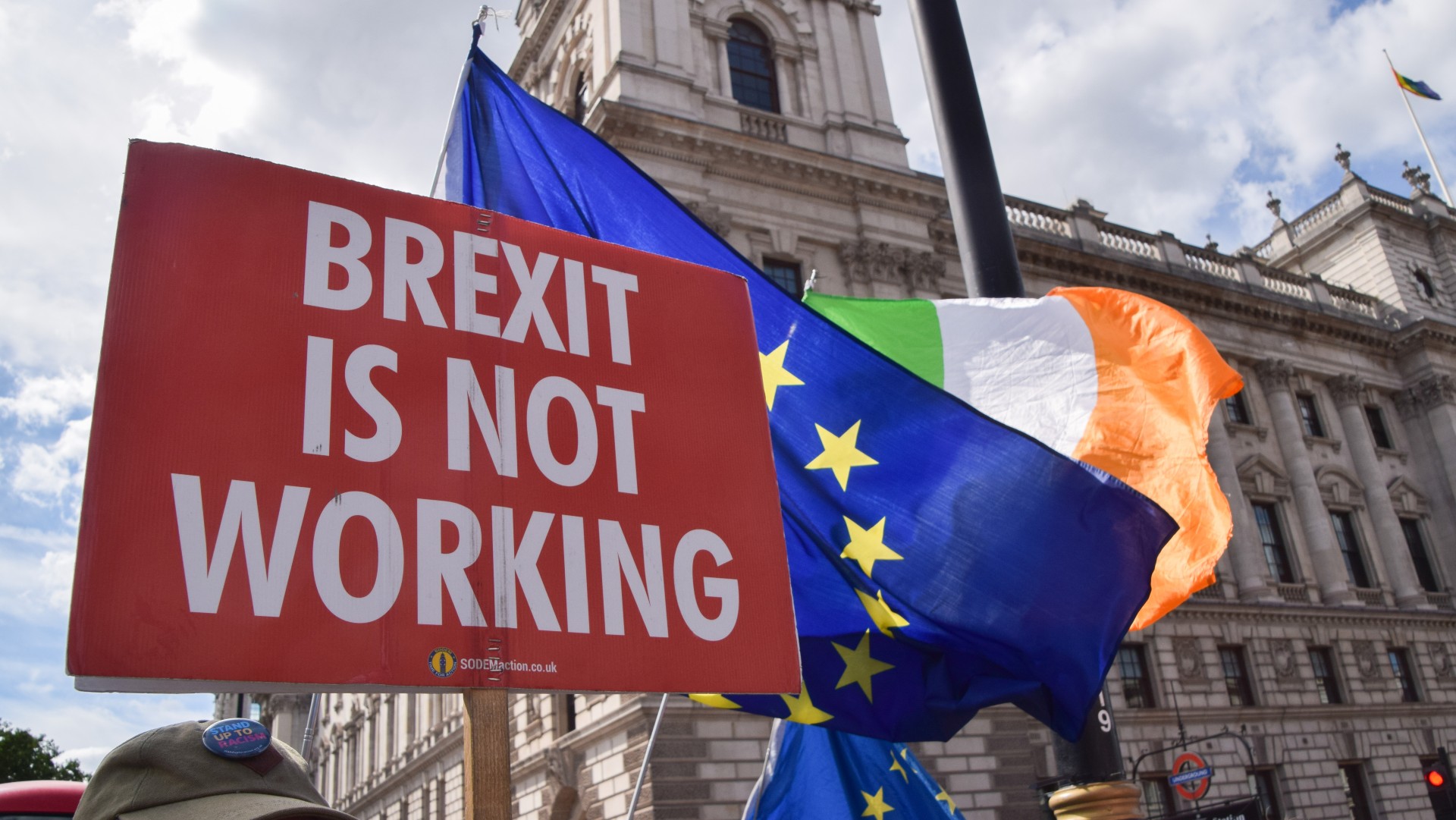Tory leadership election: is Brexit at risk?
Contenders burnish Brexit credentials but fail to answer tough questions on future relationship with EU

A free daily email with the biggest news stories of the day – and the best features from TheWeek.com
You are now subscribed
Your newsletter sign-up was successful
With Tory leadership hopefuls jostling to position themselves on a range of policies, the issue of Brexit has once again emerged as a key dividing line.
Far from having “got Brexit done”, with controversial legislation to unilaterally tear up parts of the Northern Ireland Protocol set to go before MPs in the autumn, “it will fall to the next Prime Minister to decide how far it will go”, said the Belfast Telegraph.
Despite past differences of opinion, most contenders have come out in support of rewriting the protocol, including those the Daily Express called “Remain-backing moderate candidates” like Jeremy Hunt and Tom Tugendhat, who have both already vowed to press ahead with the bill.
The Week
Escape your echo chamber. Get the facts behind the news, plus analysis from multiple perspectives.

Sign up for The Week's Free Newsletters
From our morning news briefing to a weekly Good News Newsletter, get the best of The Week delivered directly to your inbox.
From our morning news briefing to a weekly Good News Newsletter, get the best of The Week delivered directly to your inbox.
Brexit opportunities minister Jacob Rees-Mogg told Sky News’s Sophy Ridge that the next prime minister must be a firm believer in Brexit and committed to tearing up the protocol.
Attorney General Suella Braverman said she would go further and take Britain completely out of the European Convention on Human Rights (ECHR).
The long-standing international convention meant to shield human rights and political freedoms in Europe has become a lightning rod for Eurosceptics since the European court blocked the government’s plan to deport asylum seekers to Rwanda. Now Braverman has sought to make withdrawal the next dividing line over Europe, with the i news site reporting she has challenged her rivals to do the same.
The problem is that, six years after the Brexit referendum, “it isn’t clear what our government wants to make of leaving the EU”, said Paul Goodman on ConservativeHome.
A free daily email with the biggest news stories of the day – and the best features from TheWeek.com
Bluster over the protocol and ECHR amid attempts to burnish their Brexit credentials for Tory members means candidates fail to answer the crucial question: “How will you make Brexit work?”, said Sean O’Grady for The Independent.
This includes weighing up the risk of retaliation from the EU for tearing up the protocol, which could lead to a devastating trade war in the middle of a cost-of living crisis and candidates' support for the EU-UK Trade and Cooperation Agreement, including clauses on a level playing field on environmental standards, workers’ rights, competition policy, subsidy control, state-owned enterprises and climate change, which leads to “questions about those elusive ‘Brexit opportunities’”, said O’Grady.
“Better sharp questions than ecstatic cheers as a candidate tears up the Northern Ireland Protocol on stage. And louder cheers yet when a second one eats it. And louder cheers still when a third sets fire to it,” Goodman concluded.
What about Labour?
If Boris Johnson’s Brexit legacy looks safe under the next Tory leader, the same could be said of a future Labour government.
Last week, Labour leader Sir Keir Starmer sought to draw a line under his party’s own Brexit melodrama by ruling out a return to either the EU’s customs union or single market.
“Laying out detailed plans to improve, not scrap, the deal Boris Johnson struck with the EU,” the shadow foreign secretary, David Lammy, confirmed the party would seek only limited changes and would not seek to rejoin the single market, which would bring the return of free trade and free movement of people, “in a move it concedes will enrage remain supporters”, said The Guardian.
“No doubt there are cynical party-political calculations behind Starmer’s volte-face,” said James Heartfield in Spiked.
“In a way, however, this is to be welcomed. The nation faces many challenges now. That means we need to be able to debate what direction the country should take in the months and years to come, without endlessly trying to re-litigate the EU referendum. It’s time to get on with it,” he concluded.